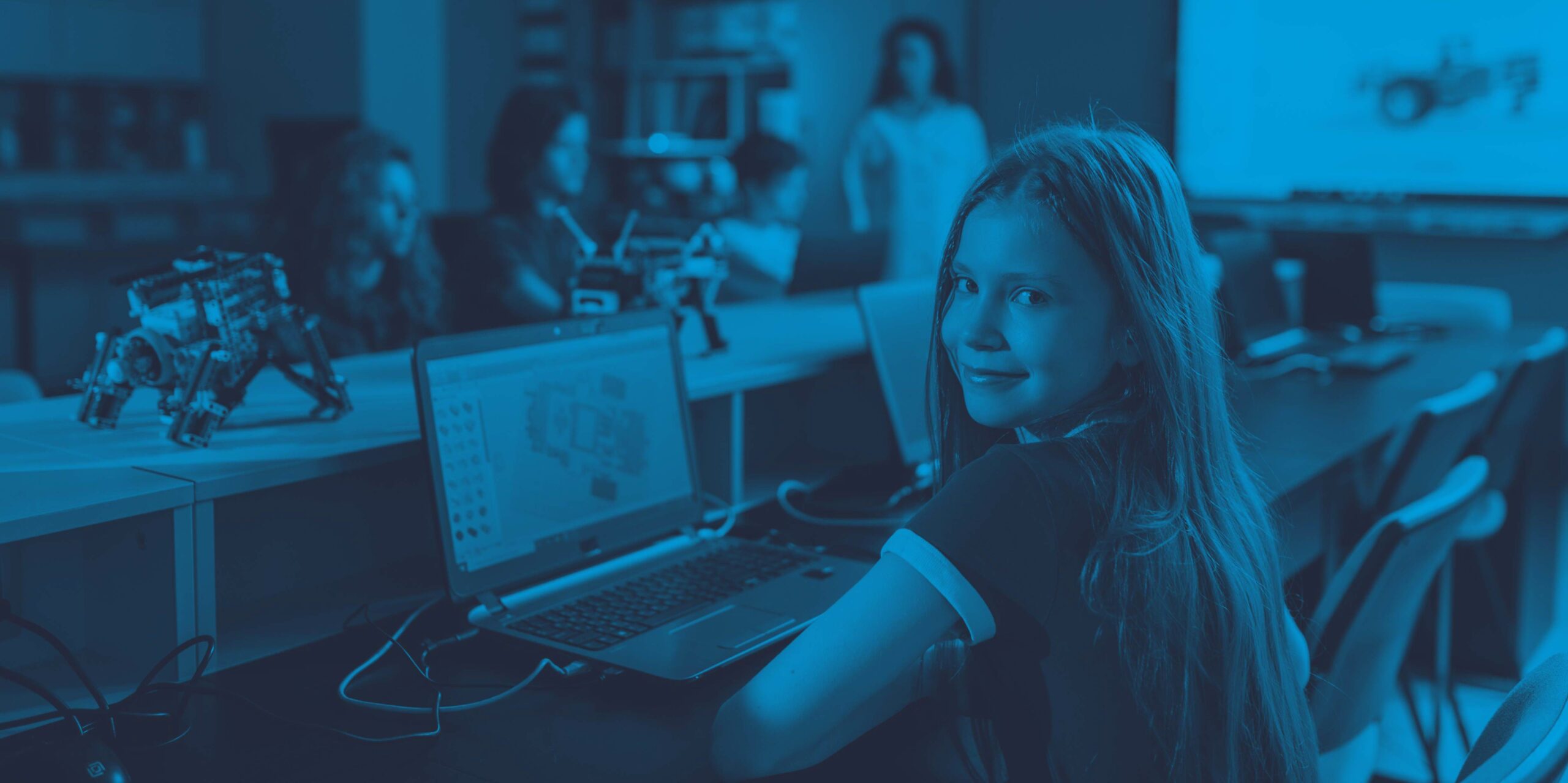Technology
The school of the digital age has to educate all children in a humanistic vision of technology
Throughout human history, there have been different revolutions that have marked progress and changed the lives of the following generations. In all of them a dark and a light vision has been unleashed on the consequences of this change. From industrialization, through the printing press, steam engine, telegraph and even TV, the changes that accompany progress have generated uneasiness and prevention in many who are reluctant to leave the “known” to enter the exploration of the “nine”. At present, continuous technological advances mean that the world is entering the depths of the digital age every day. As in past times, sooner or later it will be necessary to fully integrate digitization into everyday life. Meanwhile, prevention lurks on different fronts, heralding a gradual dehumanization of the world and society. However, some expert looks such as William Powers assure that machines will never have the command and the direction of society. For Powers “In times of digital transformation it is necessary to be proactive and make technology a means of humanization for which a joint and parallel development of the human sciences can be of great help”.
Technological advances are bringing the world into the depths of the digital age
It is not a question of closing our eyes because we do not see the risks of turning the human being into an automaton devoid of humanity. Tim Cook, current CEO of Apple Inc, said in the 2017 MIT graduation speech, “Science and technology have the power to improve the world, they can help solve problems in areas such as health, education, climate change, poverty, etc., but technology alone is not the solution, sometimes it is even part of the problem. Technology is integrated into almost every aspect of our lives, most of the time for the better. Yet it spreads, faster than ever, the adverse consequences of threats to our security and privacy, false news and anti-social media. Sometimes this technology made to connect us, divides us. Technology can do great things, but by itself, it is incapable of doing anything. It’s about us, our values and commitments to our families, neighbors, communities, our love of beauty, our belief that our destinies are interconnected, our decency and kindness. I am not concerned that artificial intelligence gives computers the ability to think like humans, I am more concerned about people who think like computers, without values, without compassion, without responsibility for the consequences of their actions. Cook explains that Pope Francis once told him, “Humanity has never had so much power over itself, but nothing assures that it will use it wisely.”
I am not concerned that artificial intelligence gives computers the ability to think like humans, I am more concerned with people who think like computers, without values, without compassion, without responsibility for the consequences of their actions. Tim Cook. CEO of Apple Inc.
In the digital era, schools must fulfill their mission to educate all children in a humanistic vision of technology, because they incorporate it into their lives as a tool for improvement and progress in all human areas. Along these lines, Jonathan Zittrain, a Harvard professor and pioneer in Internet legislation, believes that the greatest challenge is for all people to feel that they own and create technology. The problem is that while connectivity is growing exponentially, literacy and digital skills are not evolving in the same way. Universal access and digital literacy would have to be achieved in order to reduce the social divide caused by technology.

To educate children in a humanistic vision of technology, so that they see it as a tool for progress in all human areas
The biggest challenge is to make everyone feel they own and create the technology
The Coalition for Digital Intelligence, CDI, is a platform that includes three organizations with global leadership, the OECD, the IEEE standards association, and the DQ (Digital Intelligence) Institute. Their motto is, together we can close the digital divide by supporting education and making digital intelligence more inclusive. In March 2019, CDI published the report “Global Digital Intelligence Standard 2019”. This document is the first attempt to define a global standard for digital literacy, skills and readiness in education and technology, establishing a common language and a set of standards for digital competence. The report, which is part of the OECD Education 2030 framework, is the culmination of a global collaboration of the education and technology community from all walks of life, private, public and civil.
Digital intelligence (DQ) or digital competence is a comprehensive set of skills, technical, cognitive, metacognitive and socio-emotional based on universal moral values that enable each individual to meet the challenges of digital life and adapt to its requirements. The digital domain today is basic to be part of society and to be able to contribute to the progress of humanity. DQ makes people digitally wise, competent and ready to use, control and create technology successfully. A good level of DQ gives women the opportunity to integrate into the economy of the present and future and to contribute to the betterment of humanity.

DQ digital intelligence is a comprehensive set of skills, techniques, cognitive, metacognitive and social-emotional based on universal moral values that allow each individual to meet the challenges of digital life and adapt to its requirements
Most of the world’s education systems view DQ as a cross-cutting competence. Some countries also include so-called “computer thinking”, either as a new subject area or integrated into traditional STEM subjects. The most recent proposals, such as that of the CDI, consider “computational thinking” to be part of DQ and recommend the periodic revision of its competency content in order to adapt it to the social and economic needs of each moment.
The CDI (Coalition for DQ) considers “computational thinking” part of DQ (Digital Intelligence) and advises the periodic revision of its content to adapt it to the social and economic needs of each moment
Broadly speaking, there are two criteria that support the incorporation of “computer thinking” into the school curriculum. On the one hand, there is the growing need for this competition in the new economies and the increase in employment opportunities for the new generations that master it. On the other hand, its potential to develop the capacity for strategic thinking that allows for decision making and resolution of complex problems characteristic of a highly global and digitized world. As Steve Jobs said “Everyone should learn how to program a computer, because it teaches you to think (…) I see computer science as a liberal art that everyone can learn”. Whether for one reason or another, it is clear that sooner or later, programming, robotics and artificial intelligence will be thrown away in all educational systems in the world, since in addition to being the basis for being able to be creators of the digital economy, they will be necessary to understand the functioning of many everyday tools and the world itself.
Changing the focus, if we focus on the technology/learning dichotomy, we can say that digital technology has the potential to transform education by creating infinite learning opportunities. It can be used to improve the understanding of complex concepts and the simulation of realities far from the classroom. It can become a motivating factor for students by encouraging their curiosity, provoking their interest and challenging their knowledge to want to learn more. Furthermore, thanks to the interaction with expert systems, it allows the learner to receive good feedback and learn in an autonomous and personalized way. For David Perkins it is important to take advantage of all these opportunities and synchronize them with the learning in the classroom.
Digital technology has the potential to transform education by creating infinite learning opportunities for more inclusive, equitable and quality education

Finally, technology offers a great opportunity to improve school management and foster quality education. Education-oriented digital platforms are increasingly compatible and easy to use. Their tools facilitate the management and communication of information between all the agents involved in the educational community, parents, teachers and students favouring an effective individualized follow-up of the evolution and needs of each student. One of its strongest points is the contribution to improve the teamwork of the teachers, empowering them with utilities that allow them to attend to each student as a team, and encouraging each child to grow to his or her full potential.
In short, technology is here to stay and will be what the human family wants it to be. Working to align it with the ODS will contribute to the betterment of the world and human life.







